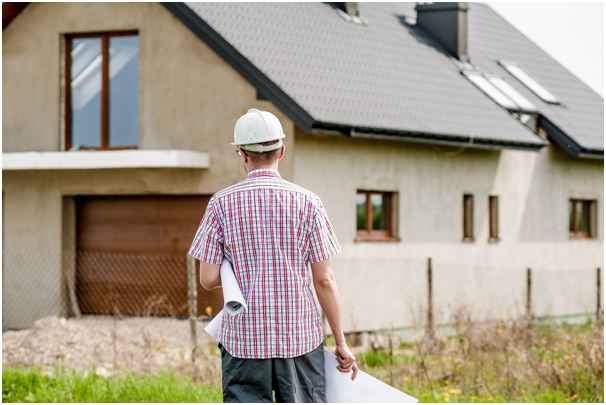Avoiding Costly Repairs to maintain a home in Long Island, New York, requires attention to various aspects, given its unique climate and lifestyle.
Long Island homes, nestled between the urban bustle of New York City and the serene beaches of the Atlantic, face a range of maintenance challenges.
From the humid summers to the snowy winters, each season brings its own set of concerns for homeowners. Regular upkeep is not just about repairs; it’s about preserving the charm and functionality of your Long Island home.
This article offers practical tips on how to maintain your home effectively, from the foundation to the roof and everything in between. Whether you’re a new homeowner or have been living in your Long Island residence for years, these tips will help you keep your home in great shape, avoid costly repairs, and ensure a comfortable living environment all year round.
Let’s dive into some essential home maintenance areas that are particularly relevant for Long Island residents.
Regular Plumbing Checks
Keeping your home’s plumbing in top shape is crucial. Regular checks can prevent leaks and blockages, saving you from expensive repairs down the line. It’s wise to engage with professionals for these inspections.
For instance, enlisting services like Varsity Home Service, known as one of the best Long Island plumbers, ensures your plumbing system gets a thorough check by experts. These pros can spot issues early, like slow drains or dripping faucets, and fix them promptly.
Also, remember to inspect your pipes for any signs of corrosion or damage, especially before winter. Taking these steps helps maintain a robust plumbing system and safeguards your home against water damage.
Roof Inspection and Maintenance
Your roof is your home’s first defense against the elements. Neglecting it can lead to costly damage. Inspect your roof at least twice a year, especially after severe weather.
Look for missing, cracked, or curling shingles, as these are signs of wear. Don’t ignore minor leaks; they can quickly escalate into bigger problems.
Cleaning your roof and removing debris like leaves and branches also prolongs its life. If you’re not comfortable doing this yourself, consider hiring a professional. Regular maintenance keeps your roof in good condition, ultimately extending its lifespan and saving money.
Gutter Cleaning and Care
Gutters play a key role in directing water away from your home. When they’re clogged, water can overflow and damage your home’s foundation, siding, and landscaping. Clean your gutters at least twice a year to prevent blockages.
Remove leaves, twigs, and any debris that might have accumulated. Also, check for leaks or misaligned gutters that could cause water to seep into your home. Simple tasks like these keep your gutters functioning properly and prevent water damage, which can be costly to repair.
HVAC System Upkeep
A well-maintained HVAC system operates more efficiently and has a longer lifespan. Change your air filters regularly, at least every three months, to keep your system running smoothly. Listen for unusual noises and check for any unusual smells coming from the system, as these can be signs of a problem. Have a professional service your HVAC system annually.
This ensures it’s running at peak efficiency and can help catch issues before they turn into expensive repairs. Keeping your HVAC system in check not only improves air quality in your home but also keeps energy costs down.
Electrical System Safety to Avoid Costly Repairs
Your home’s electrical system is vital but can be dangerous if not maintained. Regular checks can prevent hazards like fires or electrical shocks. Check for flickering lights, buzzing sounds from outlets, or frequent circuit breaker trips.
These can indicate underlying issues. Ensure your outlets aren’t overloaded and that your wiring is up to date, especially in older homes. If you’re not experienced with electrical systems, it’s best to hire a professional electrician for these inspections. They can identify and fix issues safely. Regular maintenance of your electrical system keeps your home safe and can prevent costly emergencies.
Foundation and Structural Integrity
Maintaining your home’s foundation is essential for its overall structural integrity. Cracks or unevenness in the foundation can lead to serious problems, including wall and floor damage. Regularly check your foundation for any signs of wear, such as cracks or water damage.
Also, ensure proper drainage around your home; water should always flow away from the foundation. If you notice any issues, it’s best to consult a professional immediately. Small repairs now can prevent extensive and expensive damage in the future. Additionally, keep an eye on your walls and floors for any signs of shifting or cracking, as these can also indicate foundation problems.
Scheduling a residential foundation inspection is an effective way to assess the condition of your foundation. Professionals can identify hidden issues before they become major concerns, helping you maintain the structural integrity of your home.
Pest Control and Prevention
Pests can cause significant damage to your home if left unchecked. Regular inspections can help catch infestations early. Look out for signs of pests like droppings, damaged wood, or unusual sounds within walls.
Keep your home clean and free of food scraps, as this can attract pests. Seal any cracks or openings around your home to prevent pests from entering. You can also consider scheduling regular pest control treatments as a preventative measure. Taking these steps helps protect your home from the damage pests can cause, saving you money in the long run.
Window and Door Insulation and Avoid Costly Repairs
Proper insulation of windows and doors is key to maintaining your home’s energy efficiency. Check for drafts around windows and doors, as these can lead to higher heating and cooling costs. Sealing gaps with weather stripping or caulking is a simple and effective way to improve insulation.
Also, consider double-glazing your windows for better thermal performance. Regularly inspect the seals around your windows and doors, and repair any damage promptly. Proper insulation not only saves you money on energy bills but also increases the comfort of your home.
Interior and Exterior Painting
Regular painting of your home’s interior and exterior is not just about aesthetics; it also provides a protective barrier against the elements and can extend the life of your home. Look for signs that it’s time to repaint, like chipping, fading, or peeling paint. Choose high-quality paints that can withstand weather conditions and wear and tear.
Remember, the color of your paint can also affect how dirt and damage show, so choose wisely. Regular painting keeps your home looking fresh and protects surfaces from damage, ultimately saving you money.
Conclusion: Avoid Costly Repairs
Maintaining your home is an ongoing process, but it’s essential for preventing costly repairs. By regularly inspecting and maintaining key areas of your home, such as the foundation, pest control, insulation, paint, and cleanliness, you can keep your home in top condition. Not only does this save you money in the long run, but it also makes your home a more pleasant and safe place to live.
Remember, investing time and effort into regular maintenance can prevent major issues down the line. Keep these tips in mind to ensure your home remains a comfortable and valuable asset for years to come.

